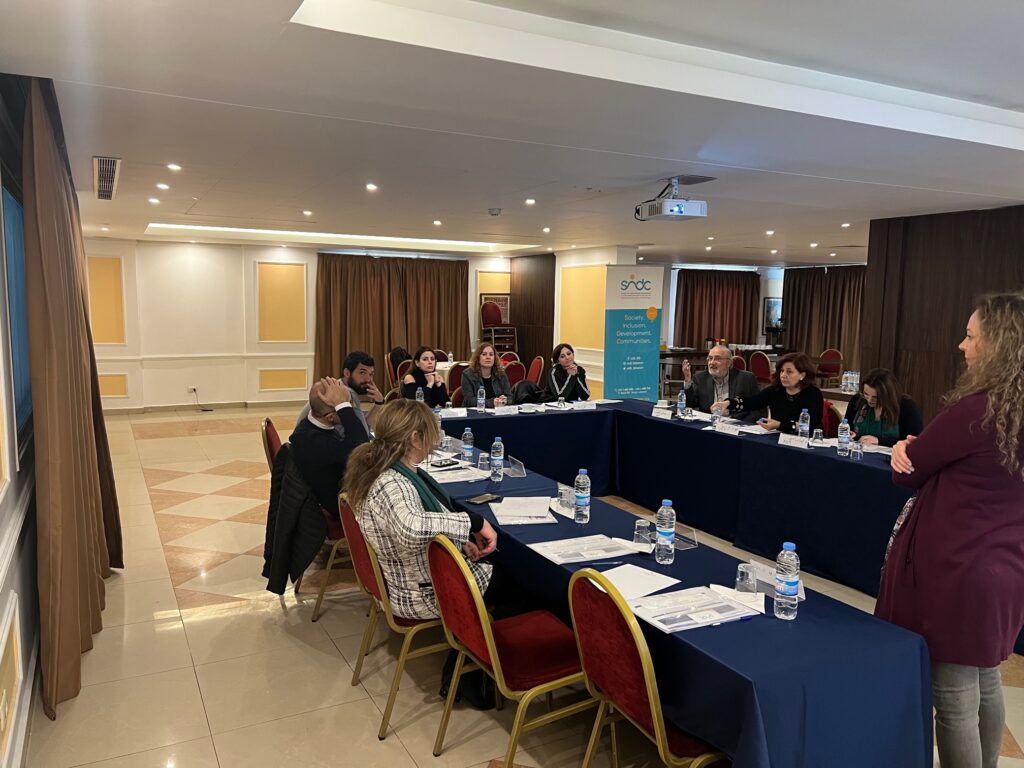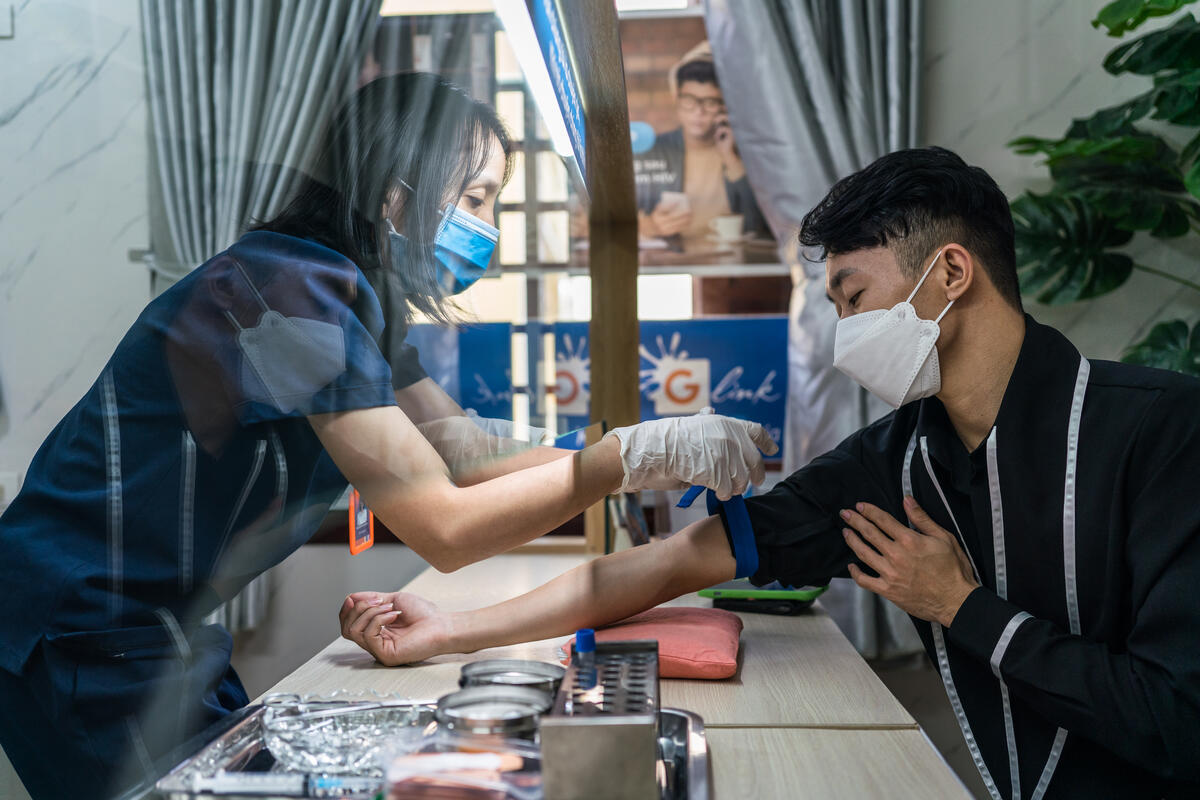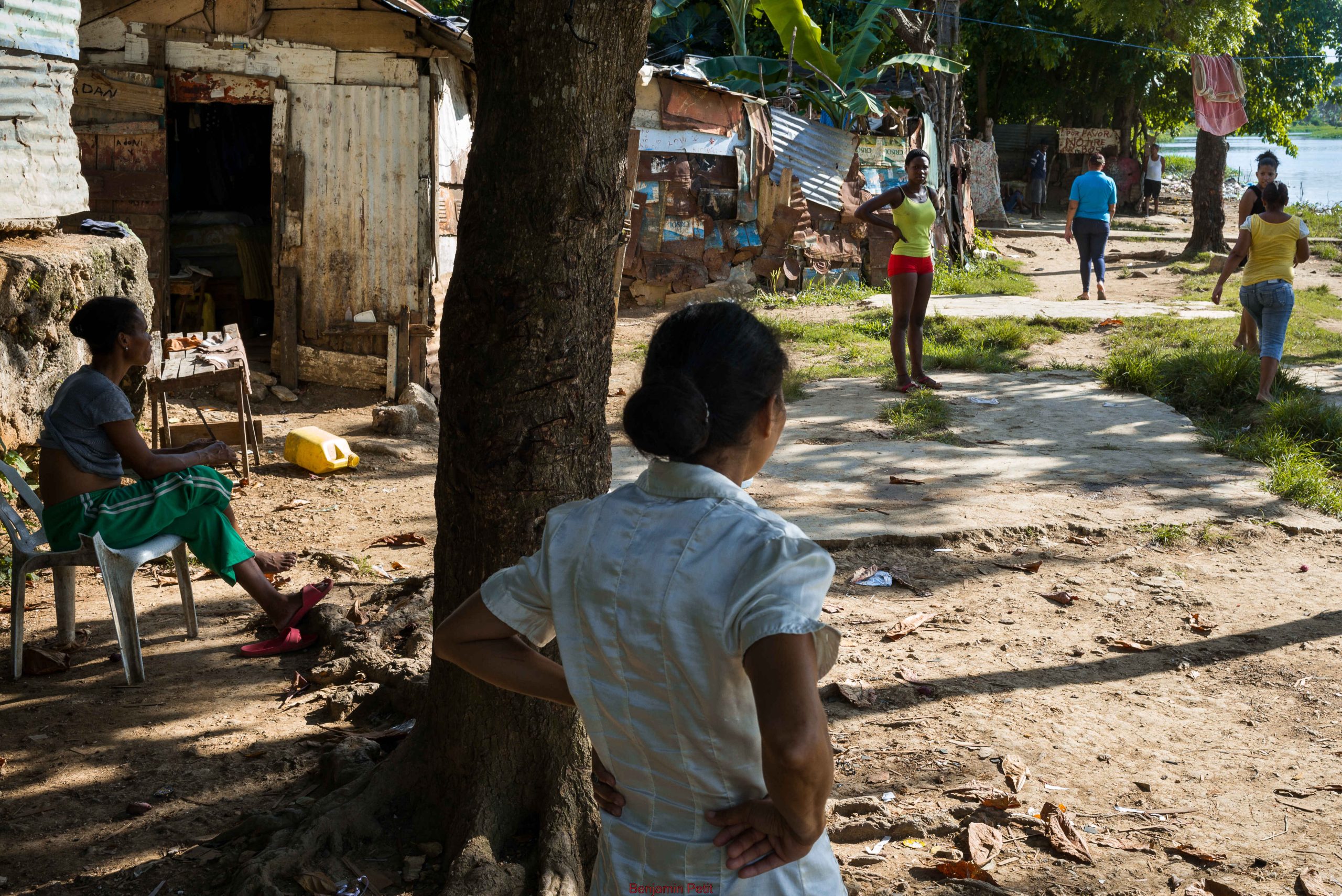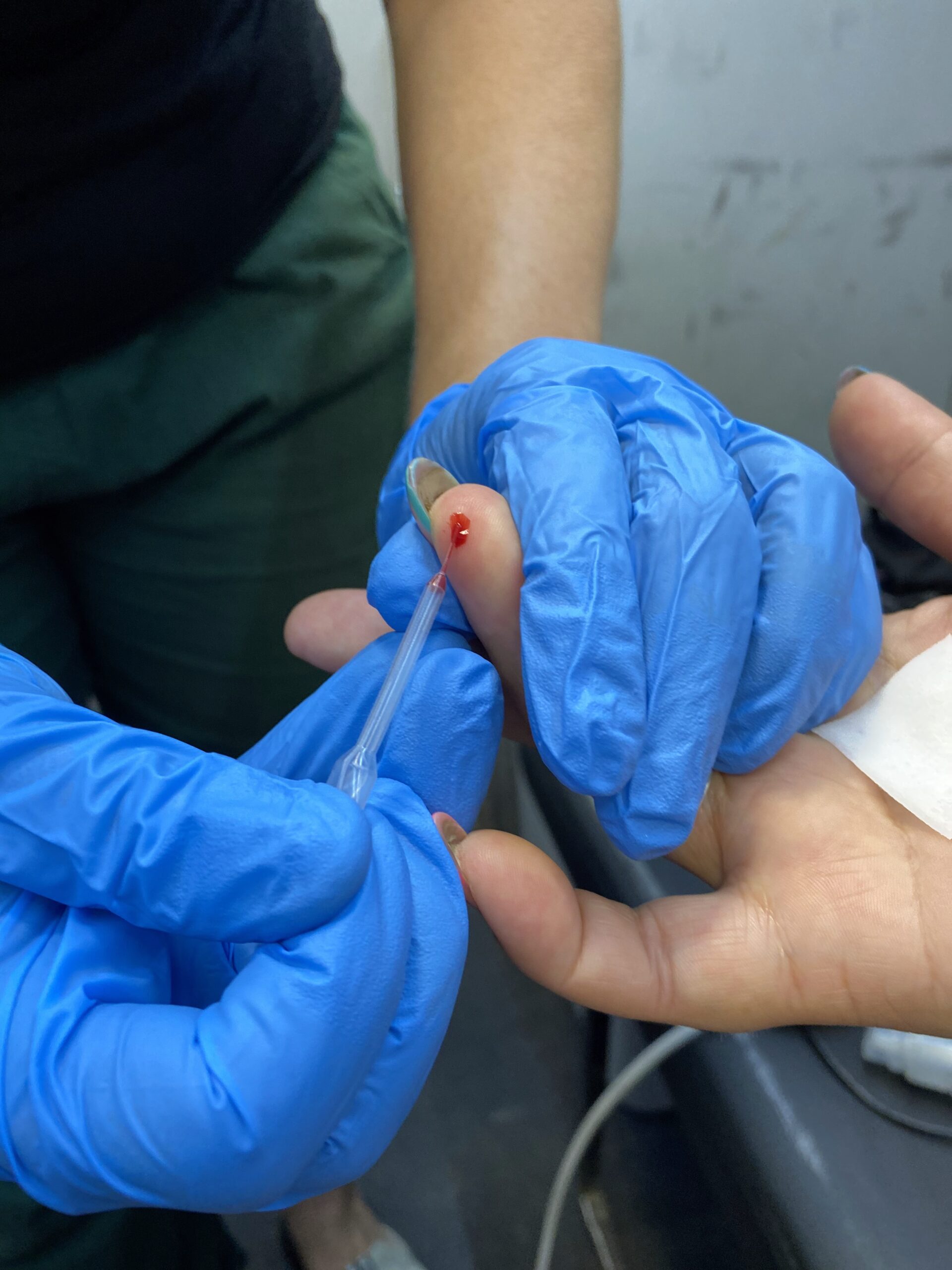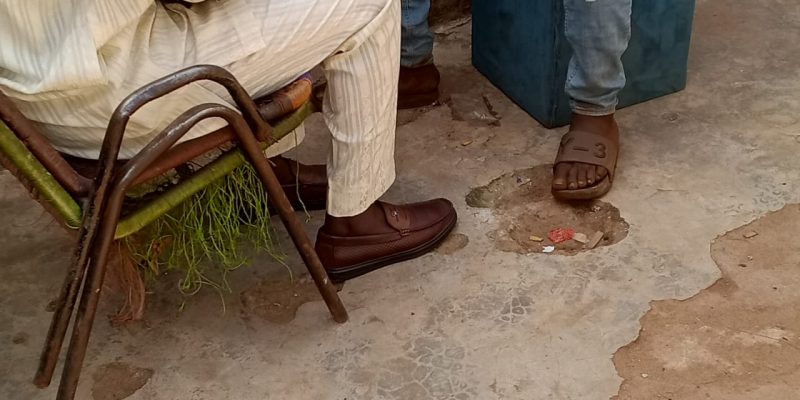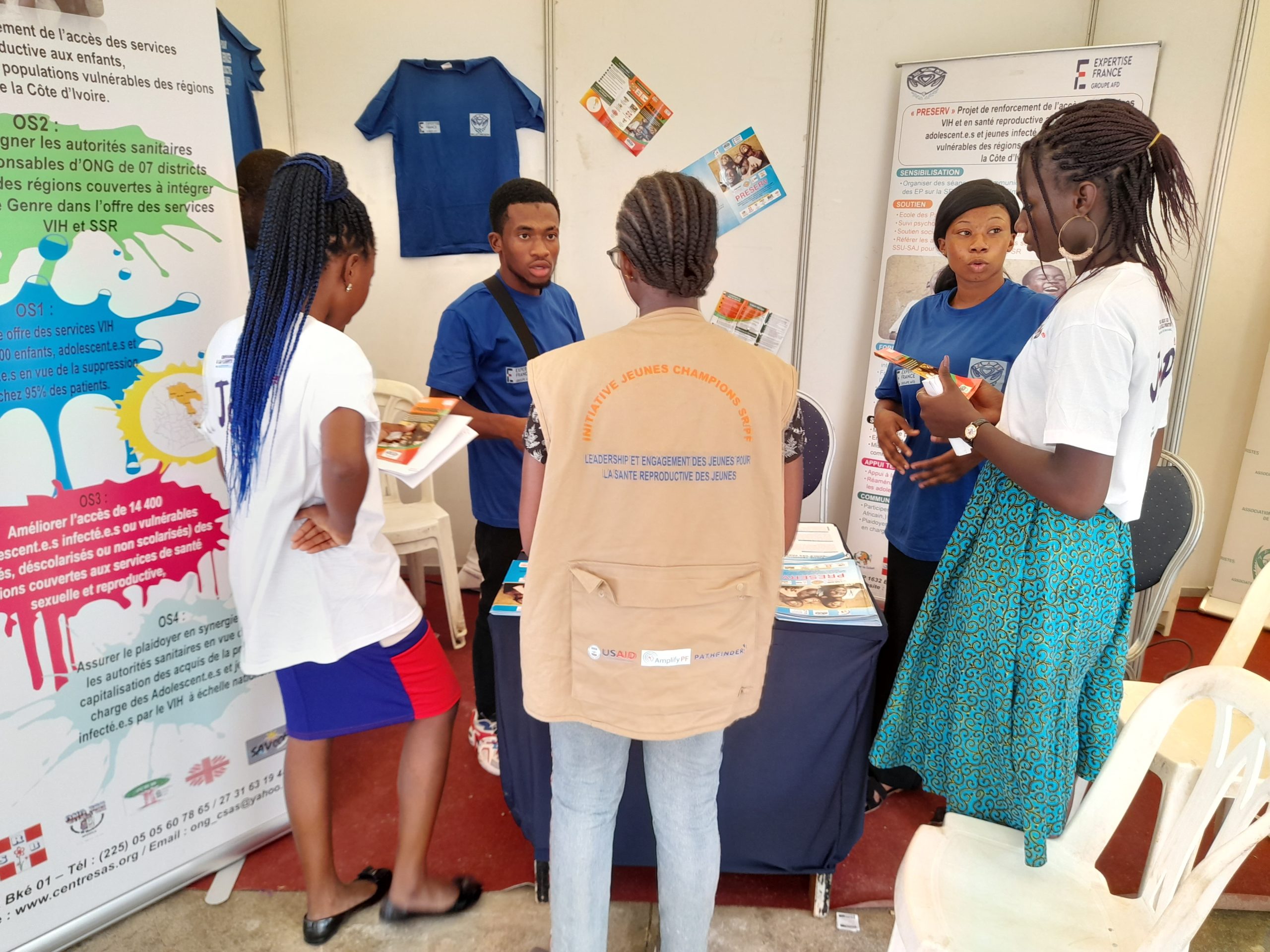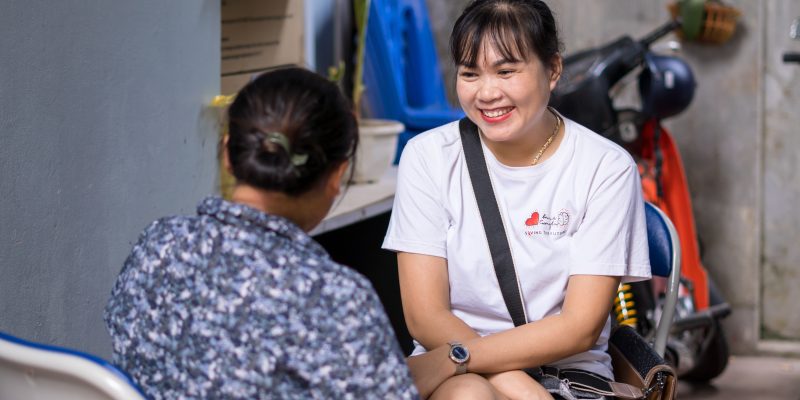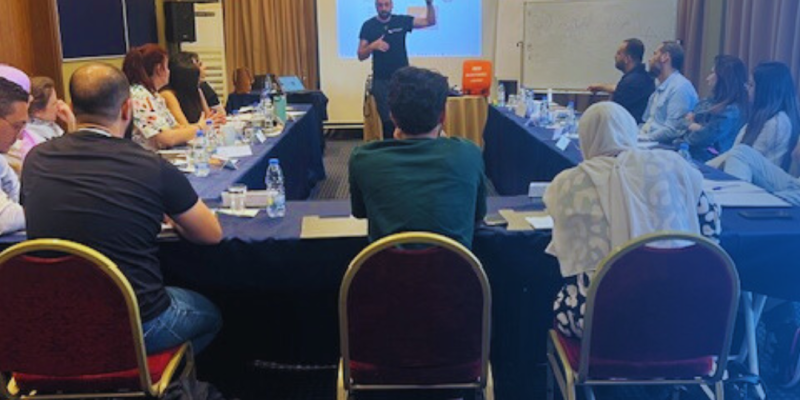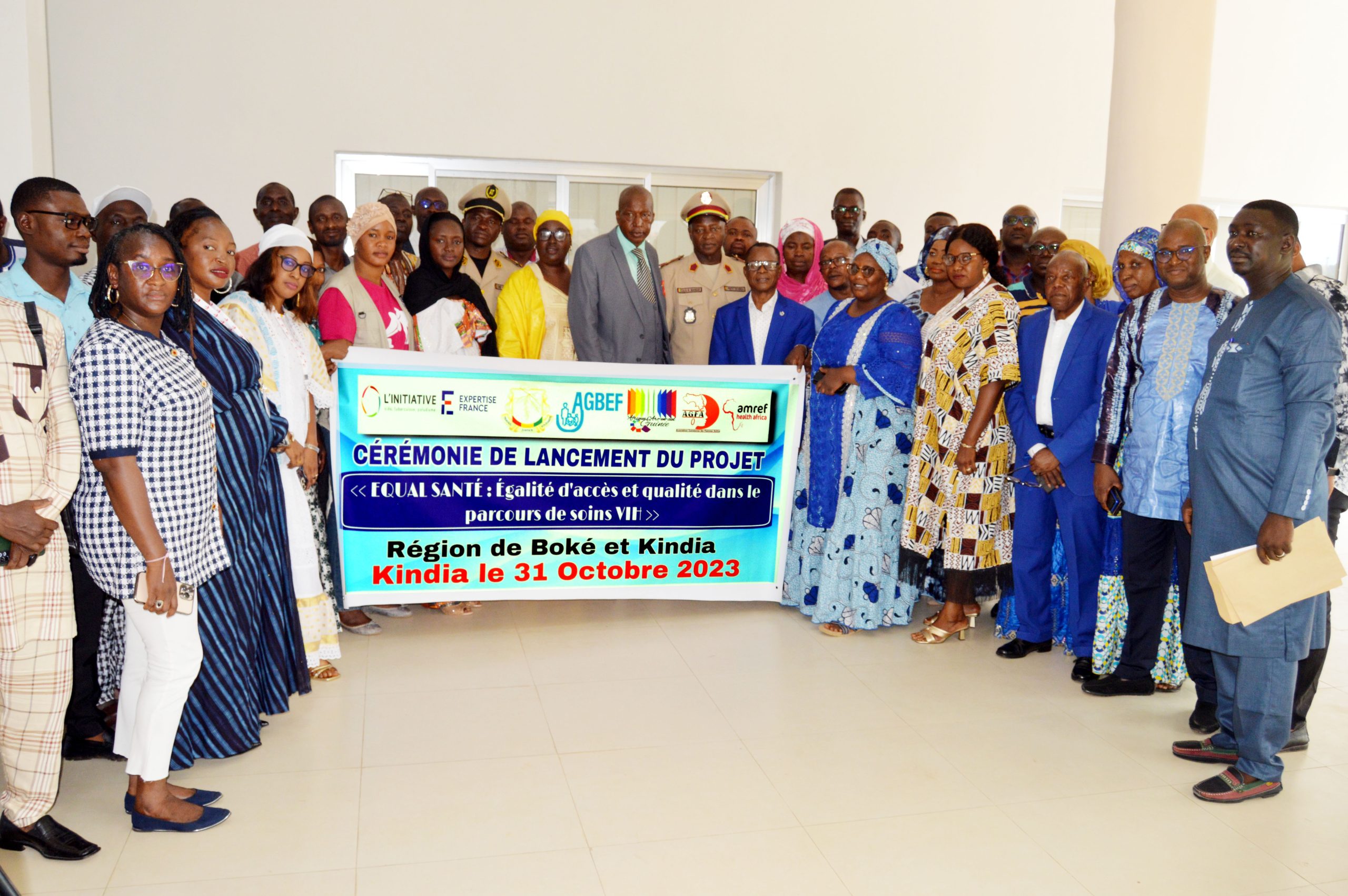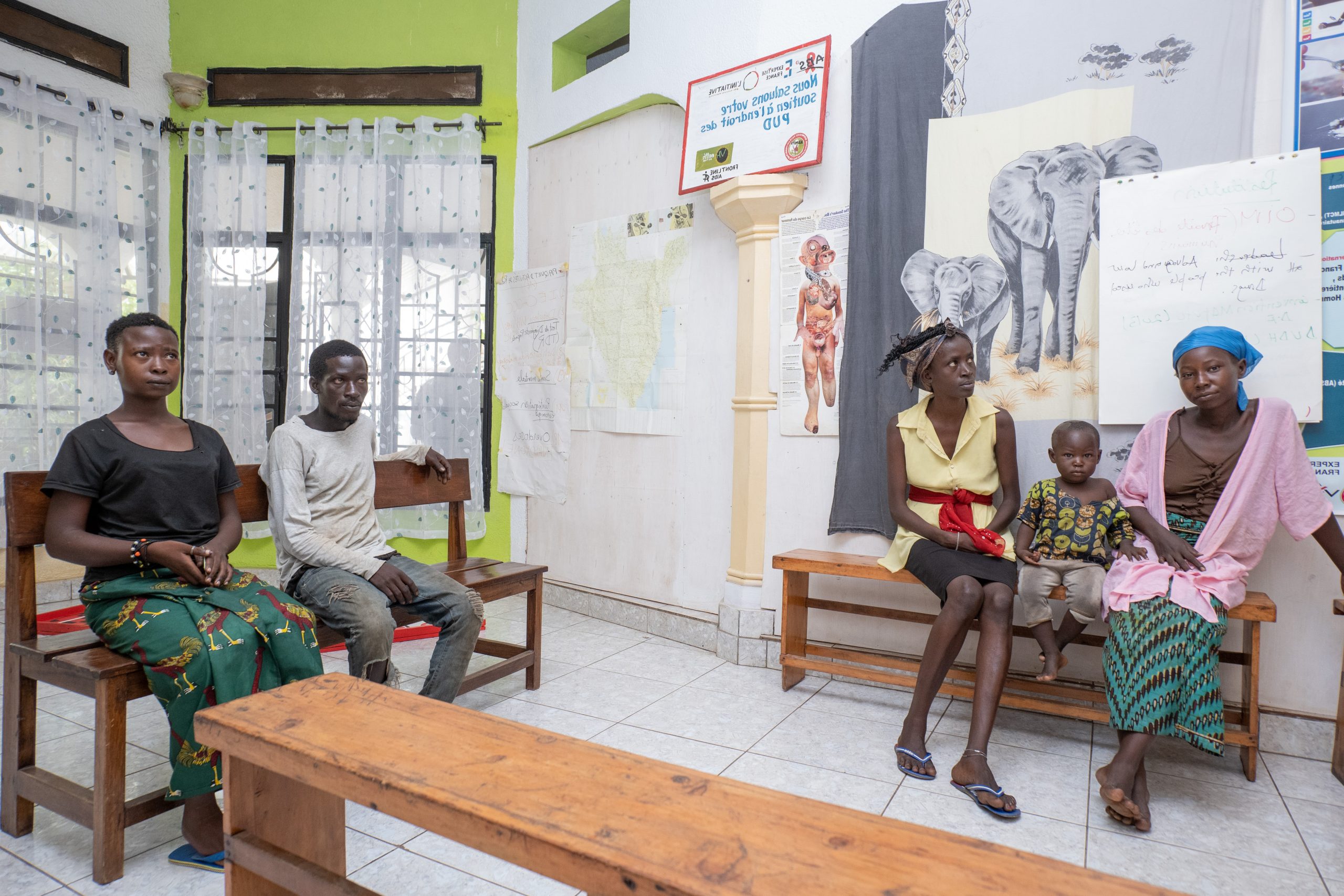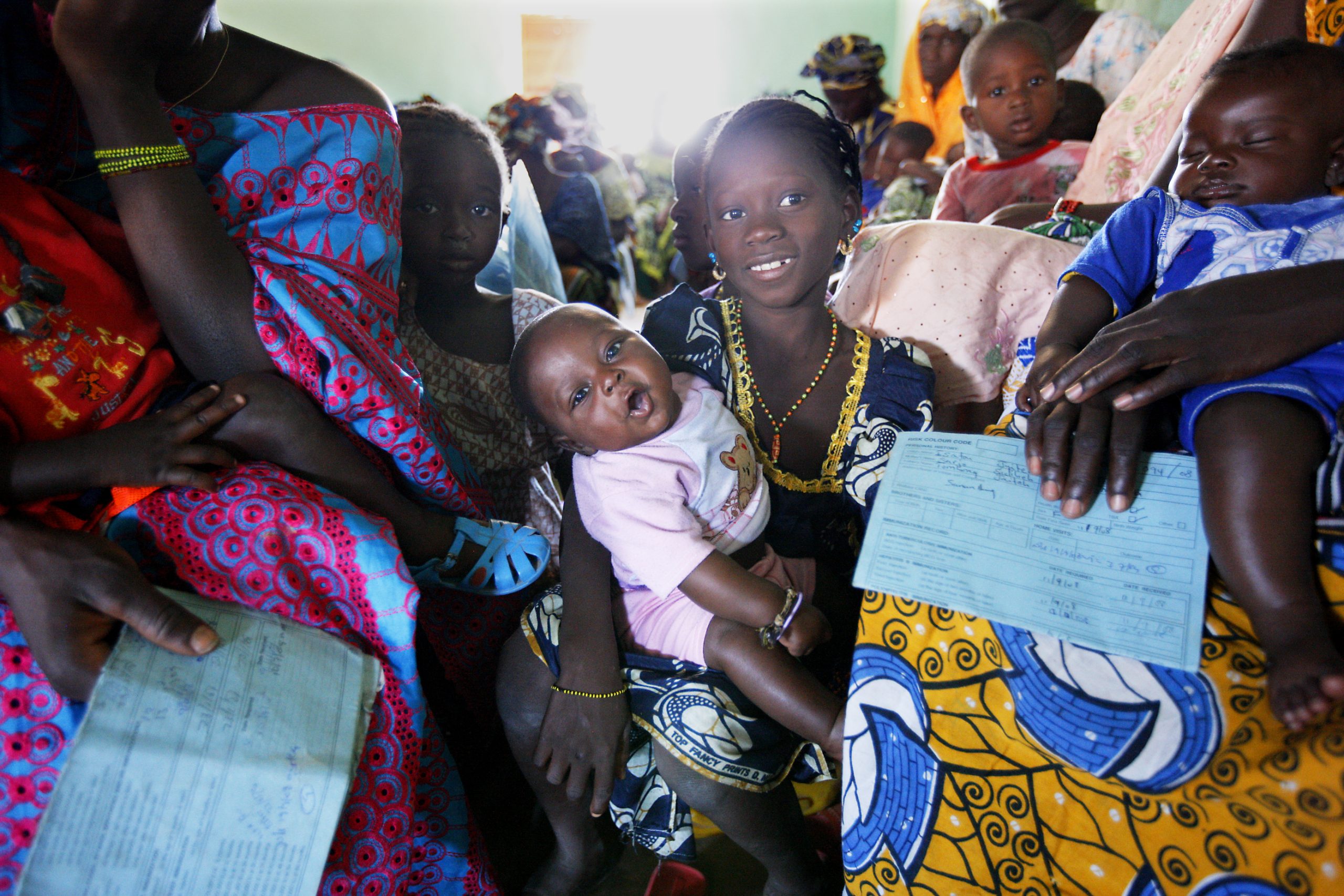Vulnerable populations face numerous challenges in accessing to HIV testing and care in Lebanon. SIDC, a local non-governmental and non-profit organization, is committed to improve people living with HIV access to healthcare, by expanding services, empowering healthcare providers, and advocating for human rights.
Context
In Lebanon, political and economic instability coupled with social troubles has deprioritized the HIV/AIDS response, severely affecting vulnerable populations. Despite a low HIV prevalence rate of 0.1%, drug users, men who have sex with men, and sex workers are disproportionately impacted. Although 86% of PLHIV know their status, only 80% are on antiretroviral therapy, and just 76% have an undetectable viral load, showing an insufficient access to treatment. While the National AIDS Program in Lebanon aims to decentralize services, most HIV testing, care and treatment services remain concentrated in major cities, forcing PLHIV to travel long distances. Additionally, strong social stigma in regions like South Lebanon and the Bekaa regions hinders access to care. There is a critical need for targeted interventions to improve healthcare access for vulnerable populations.
Description
SIDC and its partners are developing a wide range of services, including HIV and sexual transmissible infections prevention and treatment, mental health support, and harm reduction, for PLHIV and vulnerable populations. This project aims to strengthen and expand services for vulnerable populations residing in Beirut, South Lebanon, and the Bekaa region. The objectives include increasing their knowledge about HIV and healthcare services, enhancing the skills of health professionals to improve service accessibility, and advocating for the recognition of PLHIVs’ rights by the Lebanese health authorities and society.
Impact
The project aims to optimize and expand access to high-quality information, care, and treatment services, free from stigma and discrimination while creating a more supportive environment that promotes the right to health for vulnerable populations in Lebanon.
